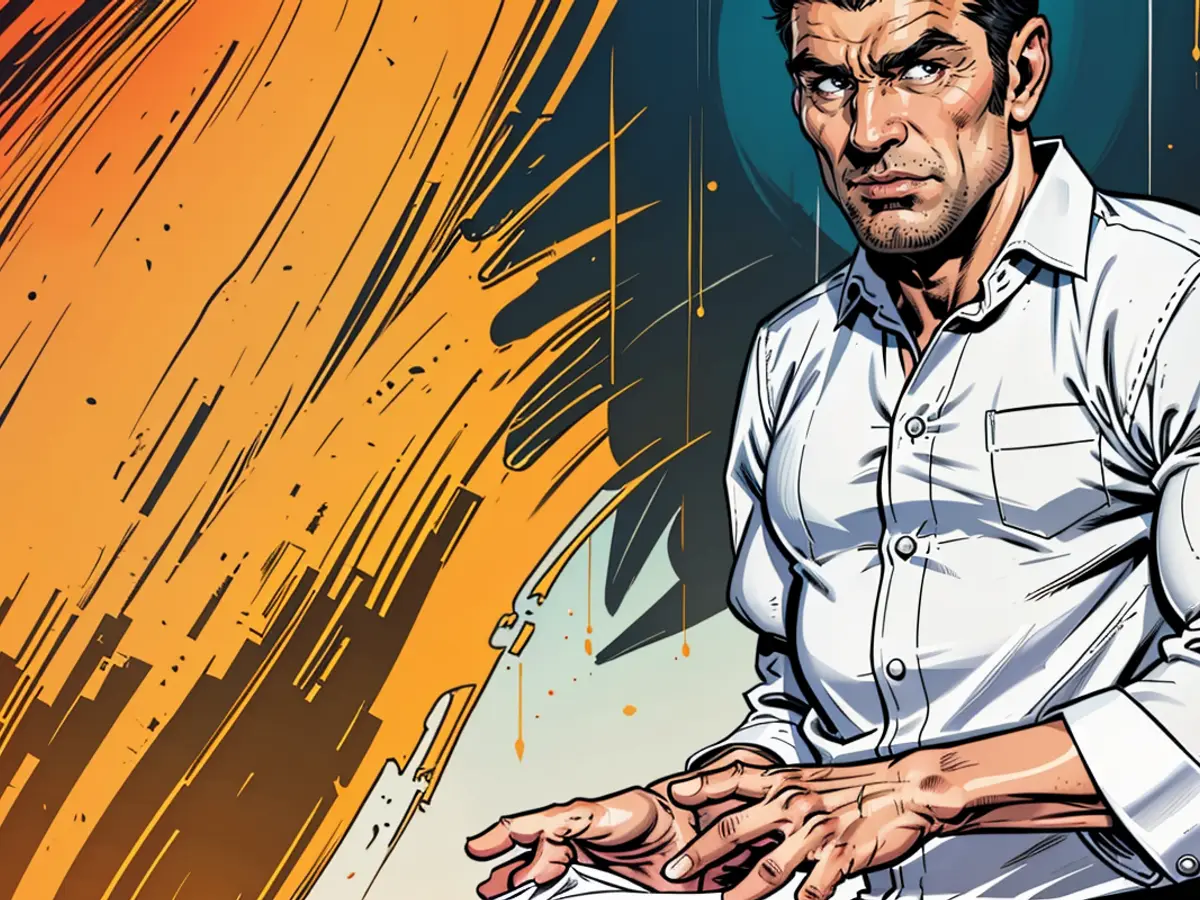- The right-wing and unregulated, perhaps?
Current Surveys Show Shift Towards Right
As per recent surveys, the AfD, with its far-right candidate Björn Höcke, consistently outperforms other parties, garnering approximately 29 to 30 percent of the votes. This puts the AfD in a position to potentially block the election of judges in the state parliament with around a third of the seats, despite no other party desiring to collaborate with them. Höcke, the 52-year-old who was fined twice for using a Nazi slogan, remains unrelenting: "We want to govern."
Following the suspected Islamist knife attack at a city festival in Solingen that led to three deaths, the AfD tried to utilize the crisis in their campaign. Höcke posted a tile on X featuring a bloody knife and an election call, and the hashtag "#Höcke or Solingen" gained traction online. However, the latest ZDF "Politbarometer" indicates no significant boost for the AfD, with a steady 29 percent.
Criticism poured in on Höcke from the business community in the run-up to the election, after he criticized an initiative by family-owned companies promoting diversity and tolerance. Höcke dismissed the campaign, "Made in Germany – Made by Diversity," as hypocritical, and his statement that "I hope these companies face severe economic turbulence" sparked widespread outrage. Alexander von Preen, president of the German Retail Federation (HDE), voiced his concern, saying, "With Björn Höcke, one of the leading figures of the AfD has once again revealed itself."
Höcke remains evasive when discussing how he intends to govern, only affirming that there should be no barrier in a democracy. However, CDU leader Friedrich Merz restated the importance of such a barrier at a campaign event with CDU top candidate Mario Voigt in Erfurt. The AfD state association has been classified as 'securely right-wing extremist' by the state office for the protection of the constitution since 2021.
Government Change Unavoidable
According to the surveys, the current minority coalition of red-red-green under the popular Minister President Bodo Ramelow (Left) seems unlikely to maintain its hold. The Left is at 13 to 14 percent, the SPD at 6 to 7 percent, and the Greens would not secure a seat in the state parliament with 3 to 4 percent. Consequently, a change of government in Erfurt becomes inevitable. Yet, Ramelow remains hopeful.
Ramelow, now 68, pledges to do his best to prevent the AfD from exerting leverage over the parliament. He keeps an open door for other parties, vowing to pick up the phone if Voigt or Wagenknecht contacted him after September 1st.
A completely novel coalition model is feasible.
Numerous coalition possibilities do not exist, according to polls. Mathematically, this could lead to an unprecedented coalition model. CDU top candidate Voigt would need to woo former leftist and former Eisenach mayor Katja Wolf of the Sahra Wagenknecht Alliance (BSW) and incorporate SPD leader and Interior Minister Georg Maier into the experimental alliance. Wolf, a recent BSW recruit, could potentially become the wildcard after the election.
According to polls, the CDU, aiming to return to the state chancellery after a decade of opposition, is at 21 to 23 percent, with the BSW, founded at the start of the year, at 17 to 20 percent. "This will be an incredibly close contest," Voigt anticipates. He categorically rejects cooperation with the Left party led by Ramelow. Wagenknecht, who is campaigning intensively for the state election and was attacked with red paint at an Erfurt appearance, has set up hurdles.
This hinges on the demand that Thuringia must take a stand against US missile deployments and a departure from the existing German Ukraine policy. Experts predict that an agreement may be reached on this issue, as it is not a decision made at the state level. However, concerns linger over whether the BSW would even want to form a state government to enter the federal election campaign unscathed.
Wagenknecht at the negotiating table
Erfurt political scientist André Brodocz sees a stronger desire in the BSW to participate in a government, but does not rule out a model wherein the BSW only tolerates a minority government. It largely depends on whether the new BSW faction "establishes its own autonomy." Wagenknecht wants to be a part of potential coalition talks in Saxony or Thuringia and contribute herself, as she has emphasized in numerous interviews.
Voigt, with just the government option through BSW, finds himself in a pickle. As long as Wagenknecht aims to govern from the outside, he faces issues, voices Voigt. In times of uncertainty, he'd meet up with Wolf. "However, the Thuringians handle their own matters," Voigt clarifies. Generating a rapport between CDU, BSW, and SPD is deemed tricky. Wagenknecht was previously a part of SED and later became a symbol of the communist movement in the Left Party. "Undeniably, some CDU folks aren't fond of that," points out Brodocz.
If the 48-year-old Wolf managed to surpass CDU via BSW, the political situation in Thuringia would be quite tight – a situation not reflected in the recent polls. Politically, this would represent an "incredible shift in power" according to Brodocz. Regarding a Minister President Wolf, Voigt remarks, "I don't think that'd be feasible."
The following surveys indicate a shift towards a potential government change in Erfurt, with the minority coalition of red-red-green led by Minister President Bodo Ramelow (Left) appearing unlikely to maintain its hold. The following ZDF "Politbarometer" suggests no significant boost for parties like the AfD, despite attempts to utilize crises in their campaign.








